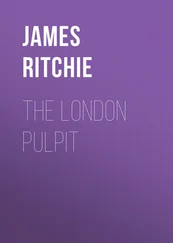James Ritchie - The Real Gladstone - An Anecdotal Biography
Здесь есть возможность читать онлайн «James Ritchie - The Real Gladstone - An Anecdotal Biography» — ознакомительный отрывок электронной книги совершенно бесплатно, а после прочтения отрывка купить полную версию. В некоторых случаях можно слушать аудио, скачать через торрент в формате fb2 и присутствует краткое содержание. Жанр: foreign_prose, на английском языке. Описание произведения, (предисловие) а так же отзывы посетителей доступны на портале библиотеки ЛибКат.
- Название:The Real Gladstone: An Anecdotal Biography
- Автор:
- Жанр:
- Год:неизвестен
- ISBN:нет данных
- Рейтинг книги:4 / 5. Голосов: 1
-
Избранное:Добавить в избранное
- Отзывы:
-
Ваша оценка:
- 80
- 1
- 2
- 3
- 4
- 5
The Real Gladstone: An Anecdotal Biography: краткое содержание, описание и аннотация
Предлагаем к чтению аннотацию, описание, краткое содержание или предисловие (зависит от того, что написал сам автор книги «The Real Gladstone: An Anecdotal Biography»). Если вы не нашли необходимую информацию о книге — напишите в комментариях, мы постараемся отыскать её.
The Real Gladstone: An Anecdotal Biography — читать онлайн ознакомительный отрывок
Ниже представлен текст книги, разбитый по страницам. Система сохранения места последней прочитанной страницы, позволяет с удобством читать онлайн бесплатно книгу «The Real Gladstone: An Anecdotal Biography», без необходимости каждый раз заново искать на чём Вы остановились. Поставьте закладку, и сможете в любой момент перейти на страницу, на которой закончили чтение.
Интервал:
Закладка:
Mr. Gladstone’s reply was as follows:
‘Do not conceal from yourself that my hands are very much weakened. It is only as representing Oxford that a man whose opinions are disliked and suspected could expect or could have a title to be heard. I look upon myself now as a person wholly extraneous on one great class of questions; with respect to legislative and Cabinet measures, I am a unit. I have had too much of personal collision with Westbury to be a fair judge in his case, but in your condemnation of him as respects attacks on Christian doctrines do not forget either what coadjutors he has had or with what pitiful and lamentable indifference not only the Christian public, but so many of the clergy – so many of the warmest religionists – looked on. Do not join with others in praising me because I am not angry, only sorry, and that deeply… There have been two great deaths or transmigrations of spirit in my political career – one very slow, the breaking of ties with my original party; the other very short and sharp, the breaking of my tie with Oxford. There will probably be a third, and no more.’
In a subsequent letter Mr. Gladstone states to the Bishop his fixed determination never to take any step to raise himself ‘to a higher level in official life; and this not on grounds of Christian self-denial, which would hardly apply, but on the double ground, first, of my total ignorance of my capacity, bodily or mental; and secondly, perhaps I might say specially, because I am certain that the fact of my taking it would seal my doom in taking it.’ The Bishop and Mr. Gladstone seem ever to have been on the most confidential terms.
In a subsequent debate on Church rates Mr. Gladstone, while opposing an abstract resolution on the subject, declared that he felt as strongly as anyone the desirability of settling the question. The evils attending the present system were certainly enormous, and it was a fact that we had deviated from the original intention of the law, which was not to oppose a mere uncompensated burden on anyone, but a burden from which everyone bearing it should receive a benefit, so that while each member of the community was bound to contribute his quota to the Church, every member of the Church was entitled to go to the churchwardens and demand a free place to worship his Maker. The case then was, especially in towns, that the centre and best parts of the church were occupied by pews exclusively for the middle classes, while the labouring classes were jealously excluded from every part of sight and hearing in the churches, and were treated in a manner which it was most painful to reflect upon.
Sir George Lewis predicted that the death of Peel would have the effect upon Gladstone of removing a weight from a spring, and the worthy Baronet judged correctly. ‘He will come forward more and more, and take more part in discussion. The general opinion is that Gladstone will give up his Free Trade and become leader of the Protectionists.’ It was not so; Mr. Gladstone had been a puzzle and wonder to his contemporaries. It puzzled the gigantic intellect of a Brougham to understand, not why Mr. Gladstone gave up office when Sir Robert Peel proposed to increase the grant to Maynooth, but Mr. Gladstone’s explanation of his conduct. Mrs. Charlotte Wynne, no superficial observer, wrote: ‘Mr. Gladstone has been given two offices to keep him quiet, by giving him too much to do to prevent his troubling his head about the Church; but,’ adds the lady, ‘I know it will be in vain, for to a speculative mind like his theology is a far more inviting and extensive field than any that is offered by the Board of Trade.’ This trait of his character especially came out when he opposed the Ecclesiastical Titles Bill, hurried through Parliament in a panic because the Pope had given English titles to his Bishops in England. Mr. Gladstone ever loved to talk of theology, and in 1870 we find him in Dr. Parker’s pulpit in the City Temple describing preachers – especially Dr. Newman, who, with his deep piety and remarkable gifts of mind, he described as an object of great interest, and Dr. Chalmers. Their very idiosyncrasies, Mr. Gladstone argued, were in their favour. In 1870, when Mr. Gladstone went to Mill Hill to address the scholars at the Dissenting Grammar School there, he ended with an appeal to the lads above all things to strive after Christian growth and perfection. Early Mr. Gladstone learned to give up his prejudices against Dissenters. Often has he confessed that they are the most efficient supporters and source of strength. Miss Martineau was a Dissenter, yet he went out of his way to offer her a pension which she declined. To hear Mr. Gladstone read the lessons, all the country round flocked to Hawarden Church when the owner of the hall was at home. People laughed when Lord Beaconsfield on a memorable occasion declared that he was on the side of the angels. When Mr. Gladstone spoke on religious topics, people listened to him with respect, because they felt that in all his utterances he was sincere. Of his Christian liberality of sentiment we have a further illustration when he and his son went to hear Mr. Spurgeon, the great Baptist preacher. The event is thus recorded; it took place in the beginning of the year 1882: ‘On Sunday evening last Mr. Gladstone and his eldest son were present at the service in Mr. Spurgeon’s tabernacle, and occupied Mrs. Spurgeon’s pew. Both before and after the service these distinguished gentlemen were together in the pastor’s vestry. Mr. Gladstone shook hands heartily with the elders and deacons present, and expressed himself highly delighted with the service. The visit was strictly private, and Mr. Gladstone and his son walked back to Downing Street.’ Many were the varying comments on the event. In the chief Opposition paper a writer recalled the fact that many years ago Mr. Spurgeon expressed a wish that the Church of England might grow worse in order that she soon might be got rid of. He then argued that if Mr. Gladstone’s sympathy with Mr. Spurgeon is what his presence at the Tabernacle would imply, we have a satisfactory explanation of the unsatisfactory character of Mr. Gladstone’s ecclesiastical appointments. Mr. Spurgeon is a foe to the Church; Mr. Gladstone goes to hear him, therefore he is a foe of the Church. Mr. Gladstone, being a foe of the Church, appoints as Bishops, Deans and Canons the men who will do the Church most mischief. Of course, the Saturday Review did its best to make Mr. Gladstone ridiculous in connection with the affair. ‘Some jealousy may be aroused in rival Bethels by this announcement, which is, we believe, the first of its kind. But it may possibly be that Mr. Gladstone is going to take a course, and that he will distribute the steps of that course equally among the various tabernacles of his stanchest supporters. The battle of the Constitution is to be fought out in the precincts of Ebenezer, and Ebenezer must be accordingly secured. Mr. Gladstone’s plan is unquestionably a wise one.’ The Saturday Review wanted to know what made Mr. Gladstone shake hands so heartily with the deacons. ‘A proceeding somewhat similar to Mr. Perkes’s plan for winning an election.’ Perhaps it is in one of Mr. Gladstone’s letters to Bishop Wilberforce that we get a clear idea of his view of the Church of England. In 1857 he wrote: ‘It is neither Disestablishment nor even loss of dogmatic truth which I look upon as the greatest danger before us, but it is the loss of those elementary principles of right and wrong on which Christianity must itself be built. The present position of the Church of England is gradually approximating to the Erastian theory that the business of the Establishment is to teach all sorts of doctrines, and to provide Christian ordinances by way of comfort for all sorts of people, to be used at their own option. It must become, if uncorrected, in lapse of time a thoroughly immoral position. Her case seems to be like that of Cranmer – to be disgraced first and then burned. Now, what I feel is that the constitution of the Church provides the means of bringing controversy to issue; not means that can be brought at all times to bear, but means that are to be effectually, though less determinately, available for preventing the general devastation of doctrine, either by a positive heresy or by that thesis I have named above, worse than any heresy. Considering that the constitution of the Church with respect to doctrine is gradually growing into an offence to the moral sense of mankind, and that the question is, Shall we get, if we can, the means of giving expression to that mind? I confess that I cannot be repelled by fears connected with the state of the Episcopal Bench from saying Yes. Let me have it if I can, for, regarding the Church as a privileged and endowed body, no less than one with spiritual prerogatives, I feel these two things – if the mind of those who rule and of those who compose the Church is deliberately anti-Catholic, I have no right to seek a hiding place within the pale of her possessions by keeping her in a condition of voicelessness in which all are entitled to be there because none are. That is, viewing her with respect to the enjoyment of her temporal advantages, spiritually how can her life be saved by stopping her from the exercise of functions essential to her condition? It may be said she is sick; wait till she is well. My answer is, She is getting more and more sick in regard to her own function of authoritatively declaring the truth; let us see whether her being called upon so to declare it may not be the remedy, or a remedy, at least. I feel certain that the want of combined and responsible ecclesiastical action is one of the main evils, and that the regular duty of such action will tend to check the spirit of individualism and to restore that belief in a Church we have almost lost.’
Читать дальшеИнтервал:
Закладка:
Похожие книги на «The Real Gladstone: An Anecdotal Biography»
Представляем Вашему вниманию похожие книги на «The Real Gladstone: An Anecdotal Biography» списком для выбора. Мы отобрали схожую по названию и смыслу литературу в надежде предоставить читателям больше вариантов отыскать новые, интересные, ещё непрочитанные произведения.
Обсуждение, отзывы о книге «The Real Gladstone: An Anecdotal Biography» и просто собственные мнения читателей. Оставьте ваши комментарии, напишите, что Вы думаете о произведении, его смысле или главных героях. Укажите что конкретно понравилось, а что нет, и почему Вы так считаете.












